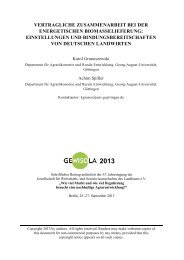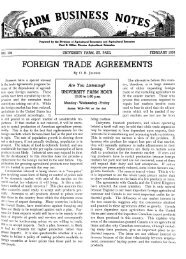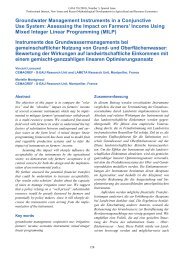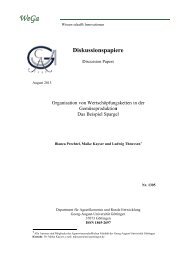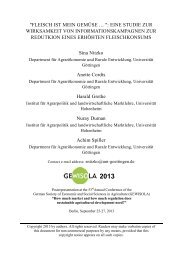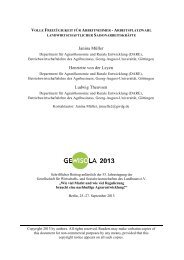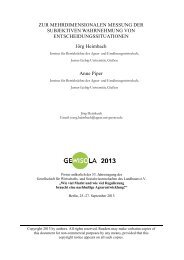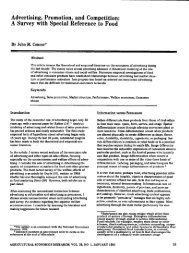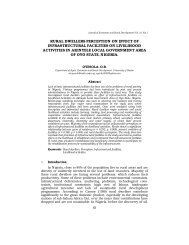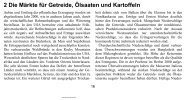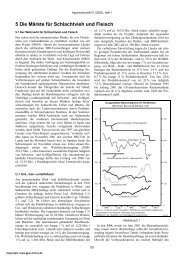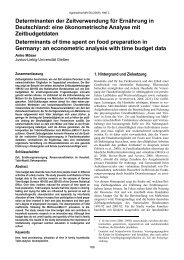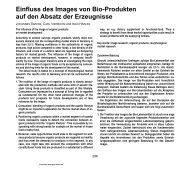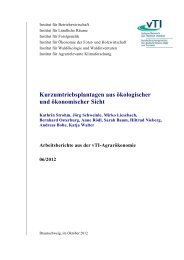District Institutes of Education and Training - Teacher Education
District Institutes of Education and Training - Teacher Education
District Institutes of Education and Training - Teacher Education
Create successful ePaper yourself
Turn your PDF publications into a flip-book with our unique Google optimized e-Paper software.
<strong>District</strong> <strong>Institutes</strong> <strong>of</strong> <strong>Education</strong> <strong>and</strong> <strong>Training</strong>: A Comparative Study in Three Indian States<br />
Chapter 9 Research into Action: The New Textbook<br />
<strong>Training</strong> Programmes in Gujarat<br />
9.1 Introduction<br />
This chapter reports on research carried out with the Government <strong>of</strong> Gujarat,<br />
which was in the process <strong>of</strong> revising its primary textbooks <strong>and</strong> had organised a<br />
cascade training programme so that all Year One teachers would be introduced to<br />
the new textbook. As part <strong>of</strong> the continuing dialogue about the teacher educator<br />
resource, the research team was invited to follow the cascade <strong>and</strong> report back to<br />
the government. Suggestions were discussed <strong>and</strong> incorporated for the Year Two<br />
training planned for the following year, which the research team also followed.<br />
Through DIETs, teachers had received Special Orientation to Primary Teaching, <strong>and</strong><br />
training in competencies <strong>and</strong> assessment. The Government <strong>of</strong> Gujarat felt that<br />
among primary teachers, as a result <strong>of</strong> their training, there is now a general<br />
acceptance <strong>of</strong> the appropriateness <strong>of</strong> an activity-based approach to primary<br />
education, <strong>and</strong> awareness <strong>of</strong> the concept <strong>of</strong> competencies. However, teachers still<br />
have practical <strong>and</strong> conceptual difficulties which include: a certain lack <strong>of</strong> clarity about<br />
competencies (particularly relating to assessment); difficulties in relating TLM to<br />
subject content, as well as in making <strong>and</strong> using TLM; <strong>and</strong> difficulties in classroom<br />
management, particularly in multi-grade situations. The new textbooks were<br />
designed as the base for helping teachers to implement the new approach to teaching<br />
<strong>and</strong> learning. The programme would help teachers work with confidence with the<br />
new books, since they would become familiar with the contents <strong>and</strong> intentions.<br />
The cascade model was selected to cover the numerical dem<strong>and</strong>s <strong>of</strong> orientating<br />
thous<strong>and</strong>s <strong>of</strong> teachers to the new textbooks before those books were introduced to<br />
schools. The staffing <strong>of</strong> the cascade tiers is explained in Figure 9.1.<br />
9.2 The new textbooks <strong>and</strong> the training programme<br />
9.2.1 The textbooks<br />
In 2000, Gujarat introduced two new Year One textbooks: one in Mathematics<br />
<strong>and</strong> the second in Language combined with Environmental Science (EVS). The<br />
new textbooks support the competency-based curriculum that has been introduced<br />
across the State, <strong>and</strong> present the competencies involved in each lesson <strong>and</strong><br />
activities to help children attain them. The decision to combine environmental<br />
science with language was made because EVS is heavily dependent on language<br />
skills, <strong>and</strong> those skills in turn could be developed through a focus on EVS content.<br />
Year Two books were introduced in 2001.<br />
The creation <strong>of</strong> these textbooks departed significantly from previous practice, in<br />
which the writing <strong>of</strong> books was entrusted to specialists selected by the State<br />
DFID 171



